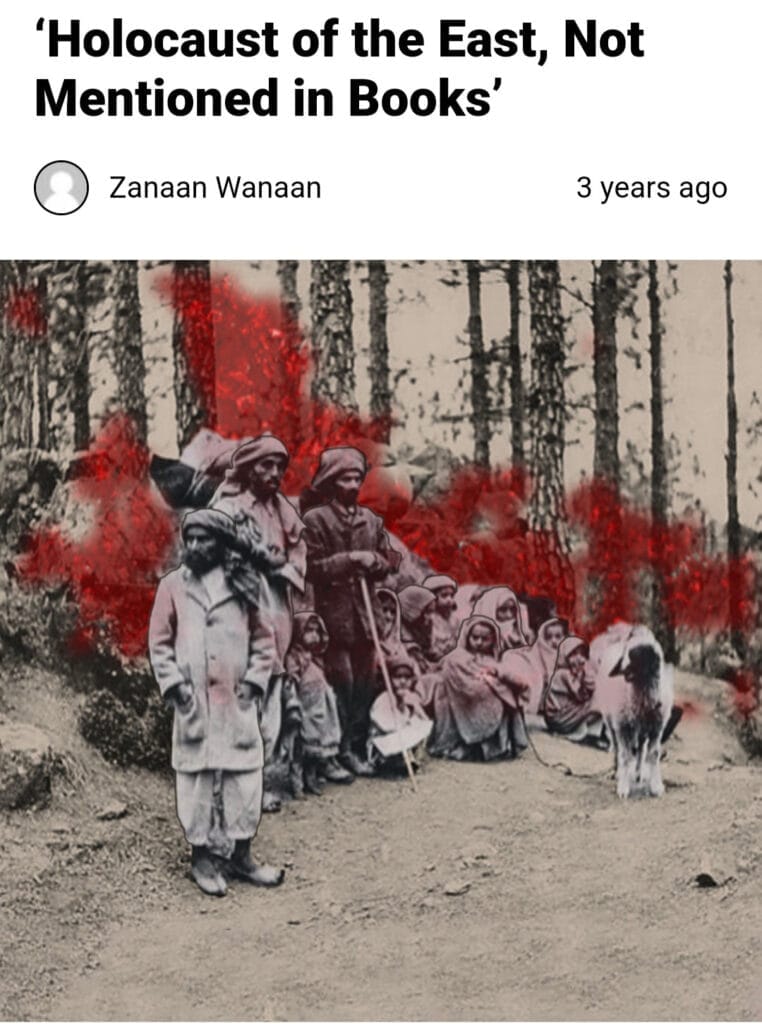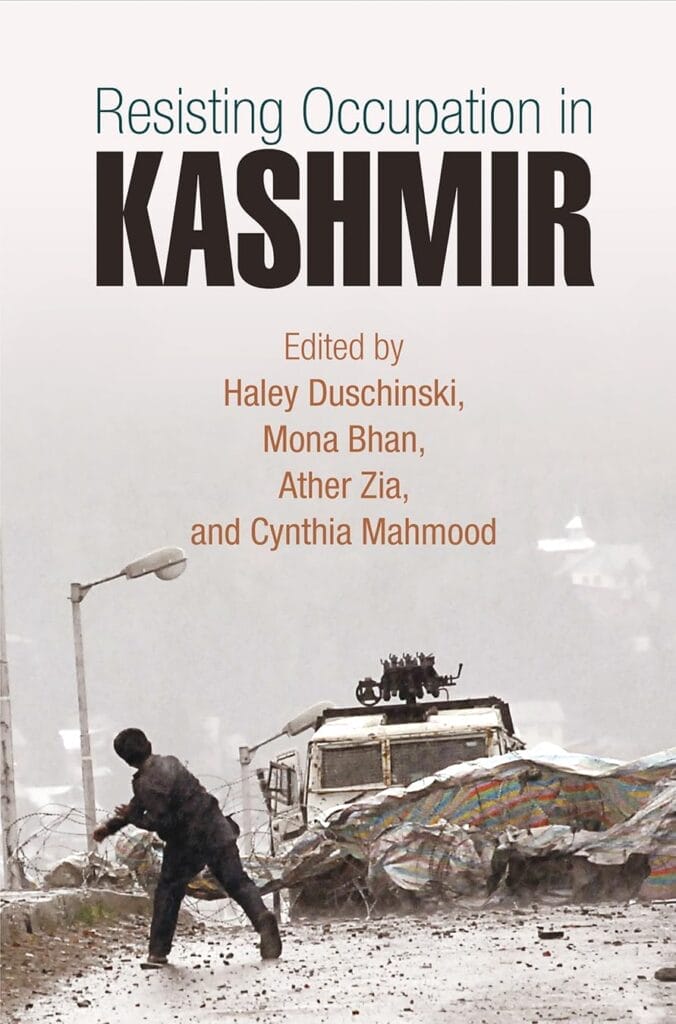This deeply troubling contemporary colonial case has not received the attention of the world’s moral majority, which it deserves. Those of us Burmese and others in India’s immediate and distant neighbourhood are generally clueless as to the kind of state crimes perpetrated against the native populations of Kashmir.
In the dying days of the British Empire, Kashmir was partitioned between the two large states – Indian and Pakistan – and remained divided since 1947. Britain’s policy towards the partition of Kashmir was overseen by its last Viceroy – Lord (Dickie) Mountbatten (of Burma). Politics, colonial or not, also has a personal dimension. Dickie was heavily influenced by his wife Edwina, an active humanitarian, involved in Kashmir’s humanitarian affairs and romantically entangled with the man who was to become India’s first Prime Minister, Jawahalal Nehru, in the consequential year of 1947. She developed a highly “one-side view”, which did not favour the Kashmiri Muslim aspirations for freedom.

Political map of the Kashmir region, showing the Pir Panjal Range and the Kashmir Valley or Vale of Kashmir. Image: Wikipedia Commons
Kashmir was the ancestral highland of Nehru who had a soft spot for the place to which he escaped for respite, and even entertained the idea of an independent and sovereign Kashmir, when his Congress party and Jinna’s Muslim League were locked in their horns, with Kashmir caught in the middle. (See Indian Summer: The Secret History of the End of an Empire, Alex von Tunzelmann, Simon & Schuster, 2007, esp. Chapter 17. Kashmir, pp.283-304).
In Kashmir, because the political violence by Delhi has been meted out within India’s international boundaries most foreign observers don’t see Kashmir as a case of settler colonialism.
But native Kashmiri have a different understanding of their own experience: they feel that their repression has a very strong element of settler colonialism, not just Indian state’s militarized control of its indigenous people and political violence from the very inception of the partition in 1947 and onwards. The pervasive sense of being increasingly colonized by India has heightened when the Far-Right Modi government engaged in the blatant erasure of Kashmir’s special administrative status – or territorial or internal sovereignty or internal administrative autonomy, granted by India’s founding Constitution of 1947. Additionally, there is Delhi’s policy and practise of transmigrating predominantly Hindu Indian farmers onto Kashmiri land.
The term “settler colonialism” has come to the fore of global consciousness since Israel launched its genocidal destruction of Gaza in particular and Palestinians in general across the Occupied Territories (since 1967).
Terms such as “settlers” and “settlerism” are deceptively benign concealing the essential criminal nature of foreign populations, moving into “lands not without people,” displacing the native populations through various violent and non-violent means, and claiming ownership of that land, all justified through both secular discourses of “state building” or “peace building” (in the case of India vs Pakistan) or, in the case of the Zionists, using various Jewish and Christian religious texts as if such make-believe literary texts were legitimate land deeds.
While Israel’s ongoing genocidal depopulation and almost complete annexation of Gaza and large swathes of the West Bank deservedly get the world’s attention, the Indian-state-sponsored settler colonialism (of Hindus) and the integral repression and political violence in Kashmir has not been on the radar of global consciousness. Kashmir is a historical parallel with the United Nations’ unjust act of partitioning Palestine in 1947. Like Palestine of 1947, the Hindu-minority-controlled Kashmir was partitioned the same year, without the consent of the indigenous, multi-ethnic populations of whom Muslims formed the majority.
As to be expected of any self-respecting human populations, the natives would revolt against such colonialist-settler policies and practices.
Political repression is the result.
As an act of our human solidarity, FORSEA is republishing a poem and poetry reading by Ather Zia, a renowned Kashimir poet, writer, scholar and dissident in the United States. She wrote the poem for her Kashmiri comrade Khurram Parvez, locked up for his human rights advocacy on behalf of his people.
Read the poem and listen to the poet’s reading below –
Further readings on Parvez and Kashmir
“Khurram Parvez: Kashmiri rights activist arrested under anti-terror law” Khurram Parvez: Kashmiri rights activist arrested under anti-terror law – BBC News
“India: Kashmiri human rights defender Khurram Parvez must be immediately released” – Amnesty International https://www.amnesty.org/en/latest/news/2022/11/india-kashmiri-human-rights-defender-khurram-parvez-must-be-immediately-released/
“There is reason to fear for the safety of every Kashmiri in India” https://www.aljazeera.com/opinions/2019/8/5/there-is-reason-to-fear-for-the-safety-of-every-kashmiri-in-india/?s=03
On Political Violence and Resistance

Read ‘Holocaust of the East, Not Mentioned in Books’ – Zanaan Wanaan
“The last decade has been a transformative period in Kashmir, the hotly contested and densely militarized border territory located high in the Himalayan mountains between India and Pakistan. Suppressed and unheard, Kashmiri political aspirations were subordinated to larger geopolitical concerns—by opposing governments laying claim to Kashmir, by security experts promoting bilateral peace settlements in the region, and by academic researchers studying the conflict. But since 2008, Kashmiris who grew up in the midst of armed insurgency and counterinsurgency warfare have been deploying new strategies for challenging India’s state and military apparatus and projecting their legal and political claims for freedom from Indian rule to global audiences. Resisting Occupation in Kashmir analyzes the social and legal logic of India’s occupation of Kashmir in relation to colonialism, militarization, power, democracy, and sovereignty. It also traces how Kashmiri youth are drawing on the region’s long history of armed rebellion against Indian domination to reimagine the freedom struggle in the twenty-first century.

Resisting Occupation in Kashmir (The Ethnography of Political Violence)
by Haley Duschinski (Editor), Mona Bhan (Editor), Ather Zia (Editor), & Cynthia Mahmood (Editor). AMAZON LINK
Resisting Occupation in Kashmir presents new ways of thinking and writing about Kashmir that cross conventional boundaries and point toward alternative ways of conceptualizing the past, present, and future of the region. The volume brings together junior and senior scholars from various disciplinary backgrounds who have conducted extensive fieldwork during the past decade in various regions of Kashmir. The contributors, many of whom were born and raised during the peak of the conflict in the 1990s, offer ethnographically grounded perspectives on contemporary social, legal, and political life in ways that demonstrate the multiplicity of experiences of Kashmiri communities. The essays highlight the ways in which this scholarly orientation—built through collaboration and dialogue across different kinds of borders—offers a new critical approach to Kashmir studies at this transformative and generative moment.”
Contributors: Mona Bhan, Haley Duschinski, Farrukh Faheem, Gowhar Fazili, Bruce Hoffman, Mohamad Junaid, Seema Kazi, Ershad Mahmud, Cynthia Mahmood, Saiba Varma, Ather Zia.
FORSEA
Banner Photo: Khurram Parvez faz um sinal de vitória enquanto é levado para a prisão. Foto por: Sameena Mir. Wikipedia Commons


